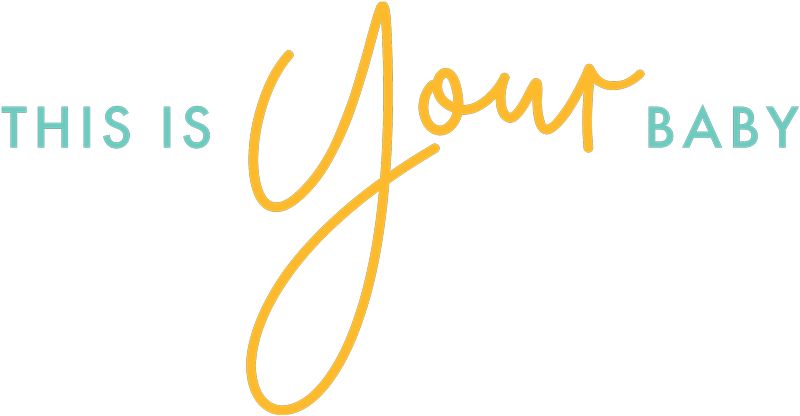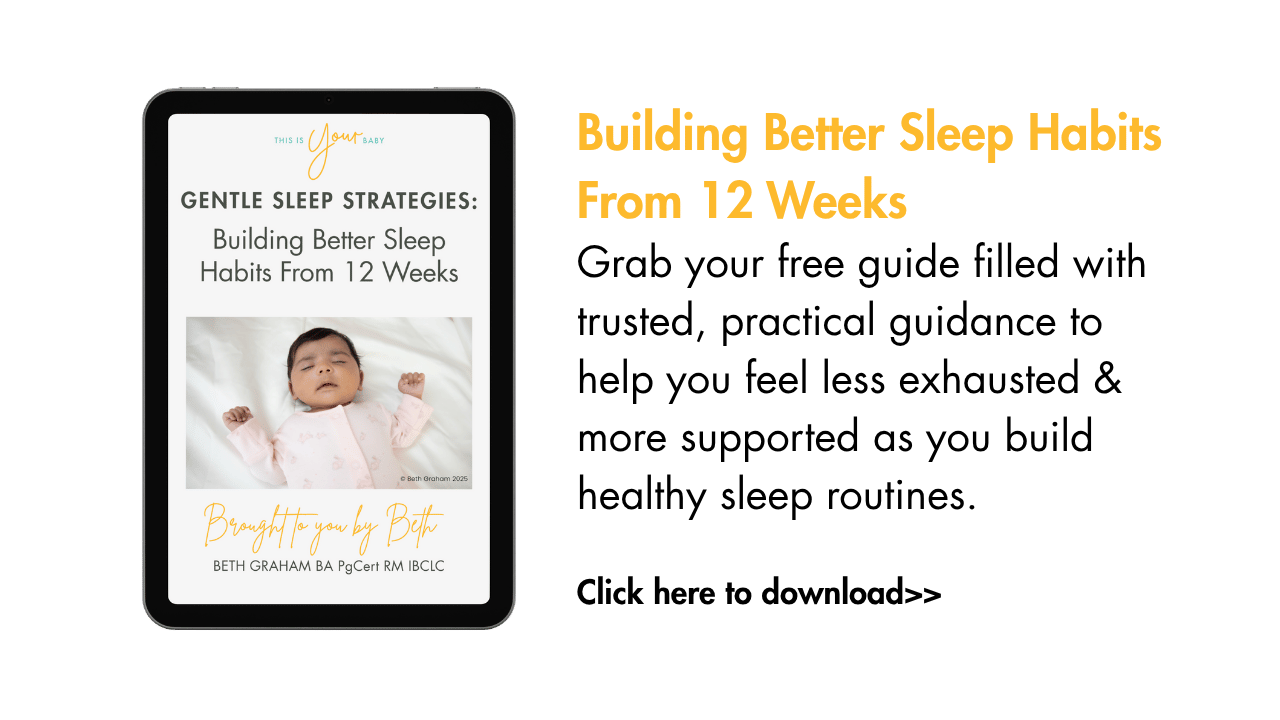How Much Sleep?
Jul 02, 2025
If you're confused about sleep expectations for your baby, you're not alone. There’s so much conflicting advice out there, and when you're sleep-deprived and trying to do your best, it can feel overwhelming. This guide is here to offer you a simple, realistic framework to help you feel more confident and reassured that you’re doing the right thing for your baby and for yourself.
The goal isn’t perfection. It’s rest. It’s creating rhythms and routines that help your baby grow and thrive while giving you the energy and space to care for them and yourself.
Does Everyone Struggle With Sleep Deprivation?
Yes. Absolutely yes. I get asked all the time: "When will I get to sleep again?" Or more specifically: "When will I get longer stretches of joined-up sleep?" If you're asking these questions, you're not alone.
Sleep is not a luxury - it's a necessity. Psychologists recommend that adults get between seven and nine hours of sleep per night, with a minimum of five uninterrupted hours to reduce the risk of postnatal depression. For new parents, especially in those early weeks, this can feel impossible.
And it’s OK to want more sleep. It doesn’t make you selfish. It makes you human.
When Can I Start Getting More Sleep?
The early weeks with a newborn are all about survival. You're feeding around the clock, responding to every cry, navigating weight checks, nappies, and a hundred unknowns. You're doing it all, often with very little rest.
At some point, you start to wonder: "Is it always going to be like this? When will things get easier?" The good news is: it will. You will sleep again.
So Many Opinions. Who Do I Listen To?
Some experts say never put your baby down. Others say your baby must learn to self-soothe. The result? Confusion, guilt, and exhaustion.
Here’s the truth: there is no one-size-fits-all. The best sleep strategy is the one that works for your baby, your family and your parenting philosophy. Once you decide what feels right for you, the key is to stay consistent. That way, your baby doesn’t get mixed messages.
Your Sleep Philosophy Matters
Ask yourself:
-
How important is a routine to me?
-
Do I want to have my baby in my room (recommended by the Lullaby Trust), or would I prefer my baby in their own space?
-
Can I rest well with baby in the bed?
-
Do I want to respond to every cry, or build in space for independent settling?
Whatever your answers are, they’re valid. This is your baby. You get to choose.
A Supportive Framework
Through my years as a midwife, I've developed a flexible but effective sleep strategy. It doesn’t involve rigid sleep training or unrealistic schedules. It’s about understanding what’s normal, recognising cues, and gently working towards better sleep for everyone.
You’ll find support for this approach inside the "This Is Your Baby" app, where we guide you with practical tools and step-by-step advice.
Let’s start with the foundations...
Sleep by Age: What to Expect and How to Support It
Newborn to 2 Weeks
-
Typical Sleep: 16 hours a day (broken into many short stretches).
-
Feeds: Every 2–3 hours day and night.
-
Awake Time: Very short. They may fall asleep during or after every feed.
Focus: Feed well, hold baby often, and help them feel safe earthside. Support them to settle after every feed, avoid snacking, and wake them every 3–4 hours if they don’t rouse on their own. Watch for sleepy cues and respond quickly before baby becomes overtired.
2 to 6 Weeks
-
Typical Sleep: 14–16 hours a day.
-
Awake Time: Slightly longer after some feeds.
Focus: Maintain regular day feeds every 3–4 hours. Try leaving slightly longer gaps at night. Encourage full feeds. If baby isn’t back to birth weight by two weeks, don’t panic, but seek support from your midwife or a lactation consultant.
6 to 12 Weeks
-
Typical Sleep: 14–16 hours.
-
Awake Time: More alert, especially during the day.
Focus: Begin introducing a simple bedtime routine. Help baby fall asleep with less support, gently guiding them to self-settle when possible. Maintain day feeds every 3–4 hours and begin shaping night-time sleep with consistent patterns.
12 to 16 Weeks
-
Typical Sleep: 14–16 hours (longer stretches at night).
-
Goal: Establish a 45-minute bedtime routine, help baby fall asleep with minimal help.
Focus: Continue day feeds every 3–4 hours. Baby may only need one or two night feeds now. Watch for consistent wake-up times and start helping baby connect sleep cycles at night.
16 Week Sleep Regression
By 16 weeks, baby is more aware of the world and might start waking more often.
Tips:
-
Keep baby well-fed in the day to avoid night hunger.
-
Stick to your bedtime routine.
-
If baby wakes early, wait a few minutes before feeding to see if they can resettle.
This regression usually lasts just a few nights if you remain calm and consistent.
16 to 26 Weeks
-
Typical Sleep: 14 hours total, around 10 awake hours.
-
Goal: Baby sleeps longer stretches at night with fewer wake-ups.
Focus: Let baby sleep as long as they want at night if they’re gaining weight well. Reinforce the bedtime routine and gradually increase awake windows during the day.
First Steps Toward Better Sleep
Here are a few things to start doing now:
-
Feed regularly during the day (no more than 4 hours between feeds).
-
Watch for sleepy cues and act on them quickly.
-
Create consistent routines: what happens in the day sets the tone for the night.
-
Build habits that will help you later: hold baby in the same position they’ll sleep in (on their back, not in an upright tummy down position), settle them gently, and allow them moments to try settling on their own.
What If I Need More Help?
Sometimes sleep challenges go beyond the basics. Maybe baby is gaining weight well, but still waking often. Maybe you’re unsure how to wean night feeds or transition to a cot. Or maybe you’re just exhausted and need support.
Please reach out. I offer one-to-one consultations and personalised guidance to help you find the rhythm that works for your baby, your sleep needs, and your unique family.
And remember: it’s OK to want more sleep. You can gently shape sleep without ignoring your instincts.
This is your baby. You get to decide what’s right for both of you.




